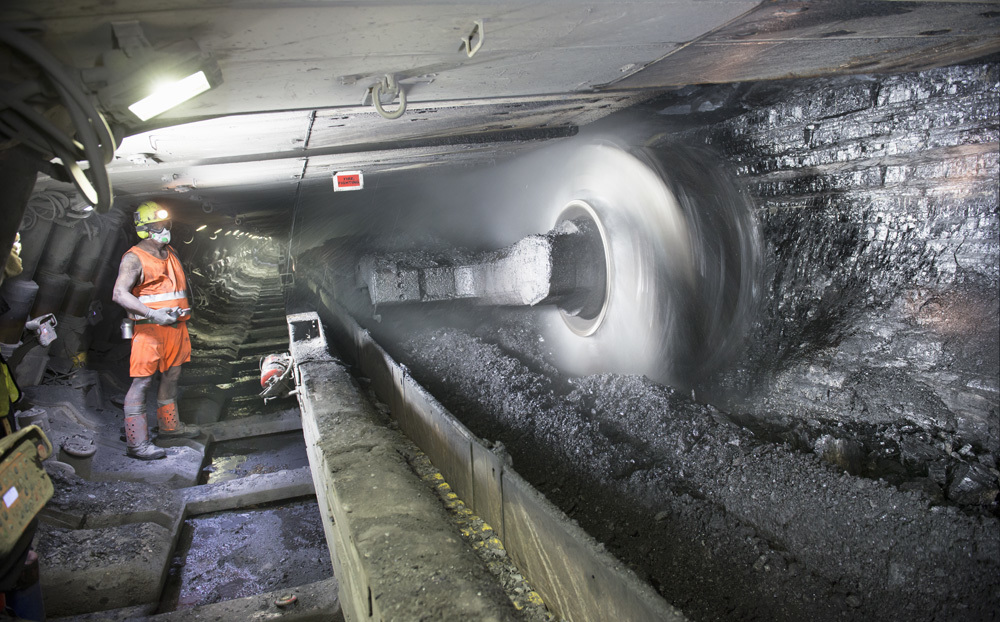
The end of underground coal mining in the UK has been marked with little fanfare, with miners leaving the country’s last remaining deep coal pit with hugs, handshakes and just a few tears.
The closure of Kellingley Colliery in North Yorkshire marks the end of an era and writes the final chapter of deep coal mining history.
But as the 450 miners who worked at the pit left with statutory redundancy and severance packages, unions and opposition MPs accused the Government of failing to support the workers.
Miners began the final coal mining shift with a rendition of Sir Tom Jones’s Delilah as they travelled underground for one last time.
They clocked off just after lunchtime and left the colliery, carrying bags of their personal belongings, to cheers and applause from colleagues.
Many shared hugs and handshakes as they walked away and said they were “very sad” at the closure of the pit, known locally as the Big K.
Neil Townend, 51, said: “There’s a few lads shedding tears, just getting all emotional.”
The miners will receive statutory redundancy pay and severance packages at 12 weeks of average pay.
Labour MP Yvette Cooper, whose Normanton, Pontefract and Castleford constituency is close to the colliery, told the Press Association: “It’s really grim for us. We’ve been fighting in this area for two years to keep Kellingley open.
“We’re just going to be more dependent on imported coal. And the Government have pulled the plug on clean coal technology.
“It’s a kick in the teeth for the last of the British miners. They’ve only got the statutory redundancy pay and they’re the ones who have been loyal to the mining industry till the end.
“It’s a worse deal than they would have got under Margaret Thatcher. That feels really unfair.”
Ms Cooper said the miners would be challenged to find skilled jobs in the area, with no alternative coal industry work to go to.
She said: “The coal industry has been at the heart of this area for generations. There are people here who feel like they’ve got coal in their blood. It feels like it’s a real loss.”
Keith Poulson, branch secretary for Kellingley NUM, said the miners were angry because they believed the closure was unnecessary.
He said: “I feel disappointed, I feel angry and, more importantly, I’ve seen my colleagues come off the last shift and you can see the anger and frustration that’s in their faces. They feel bitterly let down and disappointed.
“There was a market for our coal, coal will still be burned at Drax power station for the next 10 years or more, and that’s what’s angering a lot of these men.
“If there was no market out there to burn our coal at power stations, they would understand it, but there is and that’s ridiculous.”
Prospect, the union representing managers at Kellingley, accused the Government of failing to provide enough support to help staff retrain or seek alternative employment.
It said the workforce believes Kellingley has been thrown on the “industrial scrapheap” even though it still has ample reserves.
Mike Macdonald, a spokesman for the union, said: “We are proud of the hard work and engineering expertise of our members who have successfully delivered the last coal face in Britain under challenging physical and financial conditions. Everyone at Kellingley should be congratulated as they have met the managed closure plan safely.”
Shaun McLoughlin, the mine manager, said it was a “sad day” and thanked the miners for their “hard work and determination” and the Board of UK Coal, which owns the colliery, described the closure as a “historic moment”.
It said the UK owed “a debt of immense gratitude to those who have done so much to help power this country over many decades”.
Kellingley began production in 1965 and its closure will complete a two-year closure plan for the UK’s deep mines, implemented by UK Coal with financial support from the Government.
The company said the closures follow a long period of difficult trading conditions, largely due to low international coal prices.
UK Coal will oversee the run-down of the pit before the site is redeveloped.
After the end of the Second World War there were almost 1,000 collieries employing up to a million miners, making the industry a powerhouse and major employer in communities across Britain.